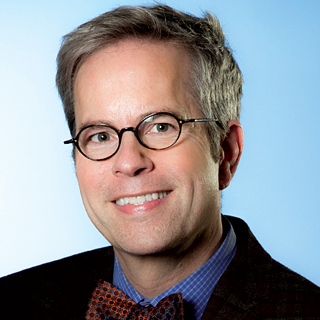
A simply elegant elegant poem by Lisel Mueller imagines impressionist painter Claude Monet debating the merits of cataract surgery with his doctor. While in actuality Monet did have cataract surgery, the author lyrically imagines how Monet embraced the beauty of this common occurrence of aging, in which the lens of the eye becomes progressively opaque, resulting in blurred vision.
While the doctor refuted the presence of halos around Parisian streetlights, Monet replied: “I tell you it has taken me all my life to arrive at the vision of gas lamps as angels.” In Mueller’s poem, Monet attempts to compel his doctor that his aging eyes are a blessing. “Doctor, if only you could see how heaven pulls earth into its arms and how infinitely the heart expands to claim this world, blue vapor without end.”
Monet had a choice: to embrace the changes associated with aging or to resist them. To willingly step forward to the unknown, knowing quite possibly it could lead him to despair.
When I recently came across this verse, I was struck by the image of Monet’s journey as a paradigm for the many changes we are experiencing in the healthcare field in 2019. Has our profession ever seen so many changes, and at such velocity? People say that a lot. I say that a lot, but “fer realz” this is wild.
Patient-Driven Payment Model (PDPM) is the most significant change in Medicare reimbursement that we’ve seen in over 20 years. The implications are broad and far reaching, but ultimately managed on the micro-level by changes in assessment, documentation, and care planning. Jobs will change, skill sets will evolve, some caregivers will exit the profession, while others enter. Care will be different, as will the outcomes of care.
Requirements of Participation, Phase 3, which are due November 28, 2019, include regulatory/programmatic changes including infection prevention and control, quality assurance and performance improvement (QAPI), a compliance and ethics program, and more. These requirements also haven’t been changed in decades, and while the new requirements are inherently good, change of any magnitude brings anxiety. And you know what else brings anxiety? Pondering the potential of surveyor misinterpretation.
Five-Star Quality Rating System. Many of you may have seen the viral video of PointRight’s “Happy 10th Birthday Five-Star” celebration. I have just finally gotten all of the cake frosting out of my nasal orifices! Moving forward from this milestone, the Centers for Medicare & Medicaid Services is now going on to make many anticipated yet seismic changes beginning in April, which will cause some of you to lose your required 3-star status. Survey-outcome data from the new survey process has been set aside since November 2017 and not incorporated into the Five-Star Survey domain. In April, they will be. Add to that new quality measures that will be added to the quality domain, along with “scoring and benchmark” changes and tighter rules around RN staffing to be implemented. Check out our co-sponsored Five-Star free webinar, featuring Cheryl Field and Jennifer Gross, here.
These changes, like all change, may be difficult, but need not always be negative. I’m convinced that PDPM will dramatically shift how care is provided and bring exceptional nursing standards to the forefront; our residents and patients will benefit, as will our profession as a whole. Requirements of Participation phases 1, 2, and now 3 have validated many excellent practices that you have already implemented or that have guided you to a higher standard of care delivery.
And Five-Star? Well, I’ve got nothing. That just hurts. Although if pressed, I’m pleased to return to three survey cycles, aren’t you?
Speaking of major changes … Kind readers, it is here that I reveal my own professional transition. As this essay is being completed, I have transitioned to a new role at PointRight. I am now Chief Clinical Officer – Emeritus. I am honored to maintain the close ties with the company that I grew up with and nurtured for over 21 years. I am clearly blessed to have collaborated with such an amazing team of mission-driven people through the years. Most importantly, helping to provide you with data-driven tools to improve the quality of care of millions of elders will be my proudest achievement.
In my new external role, I will be afforded the opportunity to explore “what I want to be when I grow up” while still supporting the mission we all share. I am excited by the possibilities, as was Monet facing the challenges of change. I also have to admit that I am also a bit scared. However, ultimately, I am thrilled to explore new ways to grow and contribute — with each of you — to working for constant improvement in the quality of eldercare in the United States. In the spirit of Monet’s discovery, let’s face the challenges — and the opportunities — of change “as we see how heaven pulls earth into its arms, and how infinitely the heart expands to claim this world!”
Steven Littlehale is a gerontological clinical nurse specialist, and Chief Clinical Officer-Emeritus at PointRight Inc.





